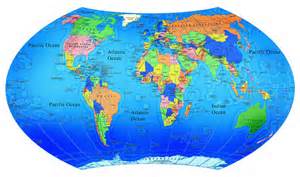“. . . whether or not we want to care about the freedom of others, we are expected to. I’ve never been to a refugee camp or bombed out city or political prisoner’s home where people told me: ‘Why isn’t Brazil helping us,’ or ‘We’re angry at Russia and China.’ Because of who we are, how we see ourselves, and the power we project, it’s always us people look to. You can see that as a burden. I see it as our greatest strength, a quality that distinguishes us from every global power that has come and gone in history. It’s also an opportunity.”
—Remarks by Tom Malinowski (Assistant Secretary; Democracy, Human Rights, and Labor at the State Department; from his speech “Human Rights and National Security: A Value-Based Foreign Policy”)
“What Would America Fight For?” The Economist asked in its May 3rd, 2014, issue. The question appeared against a backdrop of the latest crisis, how to respond to Russia’s Putin as he unilaterally grabs chunks of other countries, most recently Ukraine. The Economist remarked: “American power is not half as scary as its absence would be.”
 America, whether we like it or not, became the country that other countries expect to fix things. It is, as Mr. Malinowski said, an opportunity to do good. The problem is that power is easy to abuse.
America, whether we like it or not, became the country that other countries expect to fix things. It is, as Mr. Malinowski said, an opportunity to do good. The problem is that power is easy to abuse.
Why was it, we ask now, that we got involved in Iraq? Something about weapons of mass destruction? Which, after lives were lost and treasure wasted, turned out to be a myth.
A knee-jerk military reaction to the world’s problems is foolish. The opposite response, to suppose that we have no reason to become involved with problems far from our shores, is equally tragic. Such a response, after we turned inward following World I, was rudely shattered by Pearl Harbor. And the terrorism that began on September 11, 2001, surprised us, in part, because we ignored festering problems when we won the Cold War.
Foreign policy, unfortunately, has become politicized. Better to act on a quote attributed to Senator Arthur Vandenberg at the start of the Cold War: “Partisan politics should stop at the water’s edge.”

